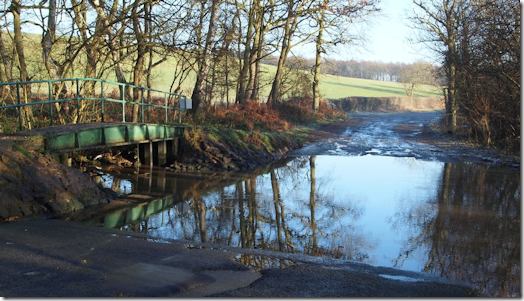 I originally wrote this after I saw this question posed on a forum a while back. The premise was that if you have been trained properly, you could pass your test at any test centre in the country. The same argument comes up periodically, and I have updated the article.
I originally wrote this after I saw this question posed on a forum a while back. The premise was that if you have been trained properly, you could pass your test at any test centre in the country. The same argument comes up periodically, and I have updated the article.
Some ADIs leap on the claim like starved chihuahuas on a pork chop. I mean, they’re better than everyone else and all their pupils could pass anywhere in the world. It’s a nice theory, and – theoretically – it ought to be true. But we don’t live in an ideal world, and reality has a big say in matters.
For most learners, passing their test at the test centre they know like the back of their hand is far from guaranteed. The national pass rate is about 45%, and even the best and most well-prepared drivers can get caught out on the day on roads they know well for any one of a hundred different reasons.
Then, there are some areas even ADIs would find challenging if they’d never driven there before. It’s worse still for new drivers, even if they have been there. Nottingham doesn’t have any particularly awe-inspiring geographical features, but it does have a few roads on steep hills and big roundabouts. The Nuthall roundabout – following the A6002 from Stapleford towards Hucknall, for example – would be a major problem for an experienced but unfamiliar driver, since to go straight ahead you need the right-hand lane, and the road markings only become visible after the single-lane road splits into four lanes. This one is on the test routes at Watnall, and unless someone has been shown how to do it, they would probably do it wrong (and they sometimes still do it wrong even if they’ve been shown how a dozen times).
Then there is the geographic area itself. In the most extreme case, Mallaig in Scotland is often cited as having the highest pass rate in the country. This isn’t because the drivers who take tests there are better than anywhere else, but almost wholly down to the fact that Mallaig is a tiny fishing village in the middle of nowhere. It has something like 10km of roads in total, no dual carriageways, one small roundabout, and a total population of under 200 in a village of 67 dwellings (and about 1,000 inhabitants in the total catchment area). It is 140 miles away from the nearest motorway, and only a few miles north west of the place where Connor MacLeod was born in Highlander. And it does around 20 tests a year – that’s one thousand times fewer tests than are conducted in Nottingham.
Nevertheless, some learners are prepared to travel up there from all over the UK in the belief they will automatically pass. And they often don’t. Quite recently, there was a case where a woman travelled up from London to do it and failed. The underlying rule is that if you can’t drive, you won’t pass anywhere, no matter how ‘easy’ it is supposed to be. In this case, she was ‘afraid of roundabouts’, and assumed that there was no underlying cause of that, when there clearly was.
There are no certainties in driving, and definitely not in driving tests. If there were, there would be pass rates of 100% by the bucket load, and instructors would be boasting more zero-fault passes than you could shake a stick at. The best you can say is that the odds of passing change if you alter what you do. Taking a test in an unfamiliar place is an alteration which is likely to add more things for the typical learner to be concerned with than it does to remove those they’re already concerned with.
No one who claims their pupils would pass no matter where they took their test has ever evaluated the claim. It’s impossible to do so, since you can’t test the same pupil in different places, everyone is different, and every test is different.
Sometimes my own pupils get it into their heads, when trying to book a test sooner than is available at the nearest centre, that going for one elsewhere would be a good idea. I only deal with Nottingham, so if they come up with Sutton in Ashfield, Loughborough, or Leicester (and they do), I refuse outright. If I don’t know how to get there without looking it up, they can forget it. I’m more amenable to the idea if it’s another Nottingham one, but not if they only do one hour lessons and a simple round trip is more than 30 minutes or so in good traffic. I will also usually put a block on it if they want the test within a couple of weeks and haven’t driven the area before.
If they persist, a quick drive around the relevant area is usually enough to get them to change their minds. Once they’ve seen all the lorries and roads full of potholes around Colwick, the Nuthall and IKEA roundabouts for Watnall, or the Long Eaton roundabout for Chilwell, most decide to stay where they were before.
As a footnote to this updated article, I ought to mention a pupil I had late 2022. His parents had taught him to drive, and I’d been recommended to them by a previous pupil to ‘finish him off’. He was a good driver – his parents had done a superb job. I brushed him up on a few bad habits, and taught him the manoeuvres (which he hadn’t done at all), but he learned very quickly. His test was booked several months hence at Colwick, but he used a cancellation checker and got one for the following week. The problem was that I couldn’t do it (I already had a test that day, which overlapped), and it was at Ashfield in north Nottinghamshire (an area I don’t cover anyway). He decided to go in his own car with his mum, but he’d never driven there before. I advised him to get his mum to take him there, find the test centre, and drive around that general area up to 20 minutes away in all directions, and then back again a different way. I used his remaining two lessons to teach him the manoeuvres in his own car.
He passed with a clean sheet – zero faults.
I’ve ended up with lots of referrals from him and his parents (six, so far), who are crediting me with his success. But I make it absolutely clear that his parents deserve the credit, and not me. I just helped a bit.
However, he was a special case. Most learners have enough trouble driving on roads they’ve done many times before, without the extra confusion from doing ones they’ve never seen.
Which test centre do you recommend?
The nearest one. If a pupil can only do one hour lessons, and lives in Long Eaton, with the Chilwell TC five minutes away, and we’ve done most of our lessons around Long Eaton, Chilwell, Beeston, and Bramcote, they’re not booking a test at Colwick, which is a good 30-40 minutes away, solely on the grounds that their mate (who lives there) passed at it last week. Not without a big discussion, anyway. I once did a test at Colwick with someone who lived in Long Eaton (we’d done many of the two hour lessons over there, mainly at night), and on test day it took us over an hour and a half just to get there – we arrived a few minutes late. Fortunately, she passed.
If they really want to use a different test centre, they can do longer lessons to make sure we can familiarise with it.
So, you just teach people test routes?
I’ve written many times about the distance I cover with pupils on lessons. Someone who I have been teaching from the start will have been on the A46 with me, and many will have been down to Leicester and back on the M1 if they do two hour lessons. They’ll have been on single-track roads, driven through a ford, dealt with horses and nut jobs with a Spandex fetish on country lanes, and quite possibly have seen Southwell Minster. All of them now know where (and what) Newstead Abbey is, and will marvel at how much of Sherwood Forest has fewer trees than a football pitch does. All of them will have passed through at least some of the villages of Papplewick, Wysall, Rempstone, Widmerpool, Wymeswold, Tollerton, and many others, for the first (and possibly last) time in their lives. On a recent one, we covered over 40 miles in an hour and half lesson.
But no matter where they have driven with me, the test will be conducted within a very tightly defined area, and driving through the ford near Oxton – while useful in its own right – isn’t going to help them stay in lane when they have to deal with the Virgin roundabout in Colwick. Nor is it going to help get it into their heads that when the bus lane ends heading back to the test centre, if they don’t move into the left lane, they’re likely to panic and mess up big time when they realise the lane they’re in is now right-turn only, and the examiner said to go straight ahead at the lights. The ford won’t help them finally grasp that driving on Marshall Hill Drive cannot be done in third gear unless you’re doing 30mph all the way up it, and that those Give Way signs at the top mean that when get there you should take your foot off the gas and be careful of vehicles coming the other way. It won’t help them understand that when people are walking across the road in front of them in West Bridgford town centre, it’s most likely because they’re on one of the seven zebra crossings over about 300 metres, and that it might be a good idea to slow down and stop for them. Oh, and the ford won’t teach them that no matter how many times they try, they can’t go straight ahead at that first mini-roundabout in West Bridgford, because the pretty red signs with a white bar across them say so.
It all comes down to this: if you can’t drive properly, you won’t pass – no matter where you take your test.
I’m teaching them how to be novice drivers. They can gain 30 years of experience… over the next 30 years by themselves. They’re not going to get that in the three months they’re with me.
People doing intensive courses have to use different test centres
I have my own views on intensive courses, but if you do them and have to book wherever is available, then that’s your affair. I’m not convinced that the test centre used should be dictated by the timescale involved in the first place, but even more so when it is just to avoid taking lessons (which it usually is with mine when they do it). Lack of familiarity with an area is unlikely to go in their favour.
Most test routes are intended to be at least a little challenging, taking in steep hills, one-way streets, heavily pedestrianised areas, and so on. I would lose pupils if I hadn’t shown them these features and they encountered them for the first time on their test. I’d lose even more if a particular individual had issues with certain things, and I hadn’t spent time on specific and more troublesome examples of them on test routes across several lessons to put things right.
Some pupils might not be fazed by unfamiliar territory. But many more are.







